
 back to all news
back to all news
SEAS has welcomed an unprecedented number of new professors, research scientists, and lecturers (2017–2022)

SEAS professors, research scientists, and lecturers are 21st century scholars and dedicated mentors leading cutting-edge research programs regionally, nationally, and around the globe.
Since the launch of the School for Environment and Sustainability (SEAS) in 2017—formerly the School of Natural Resources and Environment—we have welcomed an exceptional number of new members. Together, they have brought a range of expertise across multiple disciplines, and expand upon our curricular offerings in virtually every specialization.
MORE TO COME: In the near future, SEAS will be filling two faculty positions at the Institute for Global Change Biology (IGCB), as well as positions in the Environmental Policy and Planning (EPP) and the Behavior, Education, and Communication (BEC) specializations. Our search for the new Max McGraw Professor of Global Sustainable Enterprise at the Erb Institute also is nearing completion.
It benefits us all—most especially our students—to welcome fresh voices among us. Their unique perspectives inspire new collaborations within SEAS and beyond, and ensure that as a school, and as a community, we are ever moving forward.
In the brief descriptions of their work below, we invite you to meet Dean Jonathan Overpeck, along with the 27 professors, research scientists, and lecturers who have joined us from 2017–2022. Please follow the links for more information.
2017
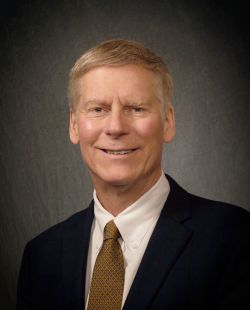 |
Jonathan T. OverpeckSamuel A. Graham Dean Ecosystem Science and Management RESEARCH FOCUS: understanding drought and megadrought dynamics (and risk) the world over; climate and paleoclimate dynamics, ice sheets and sea level, climate-vegetation interaction, conservation biology, legal issues related to climate change, environmental communication and environmental education. As an interdisciplinary climate scientist, Dean Overpeck has led active climate research programs on five continents, and has also served as the lead investigator of Climate Assessment for the Southwest and the SW Climate Science Center—two major programs focused on regional climate adaptation. |
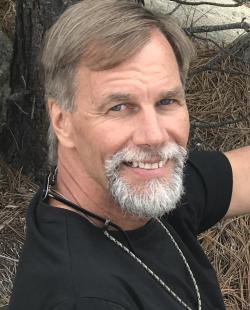 |
Ivan EastinResearch Professor, Associate Dean for Research and Engagement Sustainability and Development RESEARCH FOCUS: understanding how trade policies, including timber legality regulations, affect the international trade of wood products; and the process of innovation and evaluating the factors that influence the introduction and adoption of new wood products. He works with Native American communities to improve their capacity to more effectively market tribal wood products in the US and internationally. |
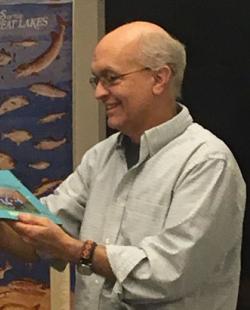 |
Paul SeelbachProfessor of Practice Ecosystem Science and Management RESEARCH FOCUS: bridging the academic study of aquatic ecosystems to its application across a range of resource management agencies, Dr. Seelbach has served as Research Scientist and Statewide Research Director at the Michigan Department of Natural Resources, Fisheries Division; Coastal Ecosystems Branch Chief at the USGS Great Lakes Science Center; Senior Science Advisor at the Great Lakes Commission; and is currently Senior Fellow at the Michigan Department of Natural Resources, Office of the Great Lakes. |
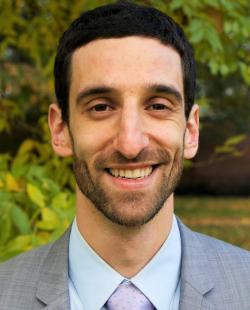 |
Sam StolperAssistant Professor Environmental Justice/Environmental Policy and Planning RESEARCH FOCUS: design and implementation of environmental policy that is both efficient and equitable; teaches courses on this subject to graduate students at SEAS as well as undergraduates in the Program in the Environment (PitE). Dr. Stolper is an environmental and energy economist. Prior to joining SEAS, he was a postdoctoral associate at MIT, jointly through the Department of Economics and the Center for Energy and Environmental Policy Research. |
2018
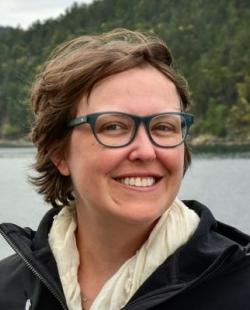 |
Karen AlofsAssistant Professor Ecosystem Science and Management RESEARCH FOCUS: how ecological concepts can be used to address conservation concerns in freshwater environments; impacts of climate-facilitated range expansions on lake fish communities; and effects of environmental stressors including climate change, invasive species, habitat fragmentation and habitat degradation on biodiversity and ecosystem sustainability. |
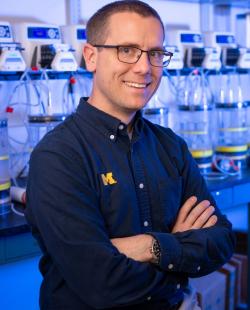 |
Casey GodwinAssistant Research Scientist Ecosystem Science and Management RESEARCH FOCUS: how the elemental requirements of bacteria and algae couple carbon and nutrient cycles in freshwater ecosystems. The driving question behind this work is “as we continue to pollute our aquatic ecosystems with excess nutrients, will cycling of carbon and other elements change in proportion, or will fertilization decouple key ecosystem processes?” As part of CIGLR, Dr. Godwin is working on projects including the effects of nutrient abundance and forms on harmful algal blooms and the influence of hypoxia on the biogeochemical cycling of nutrients and heavy metals in Lake Erie. |
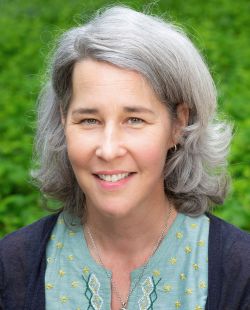 |
Pamela JaggerAssociate professor Sustainability and Development RESEARCH FOCUS: dynamics of poverty and environment interactions in low-income countries. Dr. Jagger is a global leader in interdisciplinary population and environment research; an applied political economist; leads the interdisciplinary Forest Use, Energy, and Livelihoods (FUEL) Lab; and is the Director of the National Science Foundation funded Energy Poverty PIRE in Southern Africa, a 5-year collaborative program to support research and training on the topic of energy access in Southern Africa. |
2019
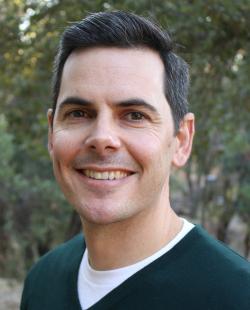 |
Neil CarterAssistant Professor Geospatial Data Sciences RESEARCH FOCUS: complex dynamics that characterize interactions between wildlife and people in a global change context; spatial ecology; landscape ecology; wildlife management, policy, ecology and conservation; and sustainability science. His study locations include: the American West, Nepal, and Mozambique. Dr. Carter employs field monitoring, social surveys, remote sensing, GIS, and spatial and simulation modeling in his interdisciplinary research. |
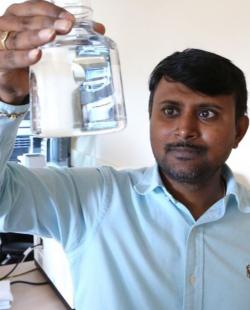 |
Subba Rao ChagantiAssistant Research Scientist Ecosystem Science and Management RESEARCH FOCUS: understanding the structural and functional diversity of the microbial community (bacteria, archaea, and protists) and how they mutually interact within the aquatic, terrestrial and host associated environments, how they are influenced by biotic and abiotic mechanisms and how they are altered by aquatic invasive species and other anthropogenic inputs and its overall impact on the ecosystem process. To answer these questions, Dr. Chaganti’s research shares a core set of interdisciplinary tools sourced from ecology, environmental biology, molecular genetics, and bioinformatics while viewing microbes as cellular components of the ecosystem body. |
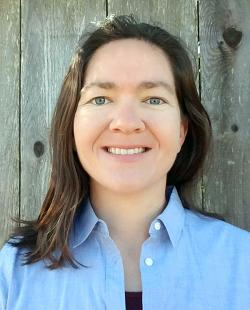 |
Stella CousinsAssistant Research Scientist Ecosystem Science and Management RESEARCH FOCUS: As an ecosystem ecologist interested in how landscapes can be sustainably managed for multiple benefits, Dr. Cousin’s current research focuses on the drivers of tree mortality in California forests and the transformations that can be expected in ecosystems that experience rapid change. In earlier research, Dr. Cousins examined forest carbon processes, air pollution impacts to montane forests, provision of watershed services, and the management of vegetated cultural landscapes. |
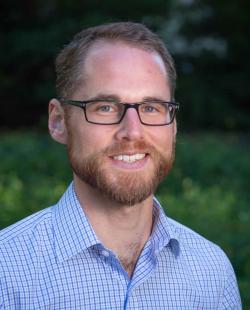 |
Michael CraigAssistant Professor Energy Systems, Sustainable Systems RESEARCH FOCUS: reducing global and local environmental impacts of energy systems while making those systems robust to future climate impacts; illuminating how the operations and evolution of energy systems respond to new technologies and environmental conditions induced by climate change through systems analysis.
|
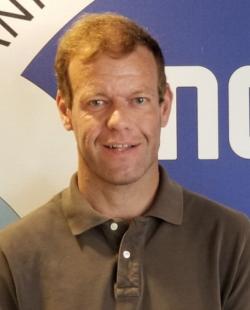 |
Michael FrakerAssistant Research Scientist Ecosystem Science and Management RESEARCH FOCUS: aquatic ecology; currently on the influence of biophysical and anthropogenic factors on ecosystem dynamics in the Great Lakes. This includes ongoing projects exploring 1) harmful algal blooms and hypoxia in Lake Erie, 2) early life history and recruitment dynamics of fish, and 3) ecosystem trends and their drivers using long-term monitoring data (integrated ecosystem assessment). Dr. Fraker is also interested in the role of predator-induced phenotypic plasticity and chemical communication in aquatic ecosystems.
|
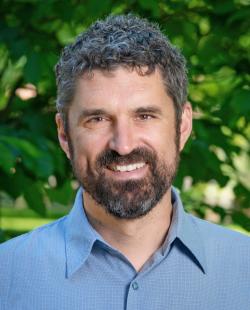 |
Drew GronewoldAssociate Professor Ecosystem Science and Management RESEARCH FOCUS: hydrological modeling; propagating uncertainty and variability into model-based water resources management decisions; predicting runoff in ungauged basins; and monitoring and understanding water quality dynamics in coastal areas. Dr. Gronewold incorporates probability theory and Bayesian statistics into watershed-scale data sets and forecasting tools. |
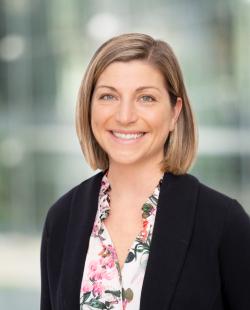 |
Sara HughesAssistant Professor Environmental Policy and Planning RESEARCH FOCUS: political and institutional dimensions of sustainable and equitable water and climate change policies, primarily in the urban context; politics and production of safe and affordable drinking water in the U.S., including policy failures behind the Flint water crisis; and urban climate change governance, including equitable approaches to building urban climate resilience. |
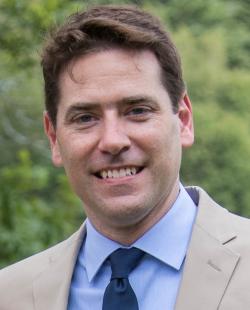 |
Brendan O'NeillAssistant Research Scientist Ecosystem Science and Management RESEARCH FOCUS: soil systems and terrestrial microbial ecology, focusing on the formation and function of soil microbial communities, the linkages between terrestrial ecosystem management and water resources, and the role of soil ecology in promoting sustainable development. Soil microbes carry out many of the processes that make soil so critical to sustainability, including regulation of greenhouse gasses. |
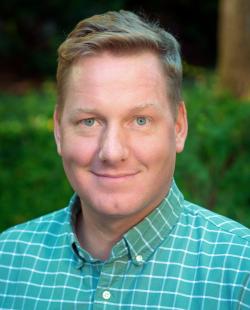 |
Derek Van BerkelAssistant Professor Geospatial Data Sciences/Landscape Architecture RESEARCH FOCUS: the human dimensions of land-cover/land-use change and ecosystem services at diverse scales; landscape management; conservation and recreation planning; and development of sustainable and resilient communities. Dr. Van Berkel employs spatial analysis and geovisualizations of social and environmental data, leveraging social theory, big data, machine learning, spatial-temporal computer modeling and spatial statistics. |
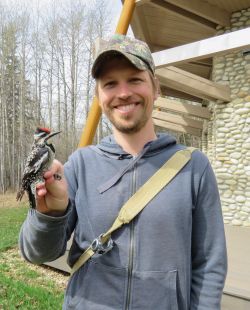 |
Brian WeeksAssistant Professor Ecosystem Science and Management RESEARCH FOCUS: how bird species and bird communities have responded to environmental change; interests ranging from the influence of macroevolutionary processes on the vulnerability of communities in the Solomon Islands to morphological changes over the past 40 years in North American birds. Dr. Weeks is an evolutionary ecologist and a museum/field/lab-based biologist. |
2020
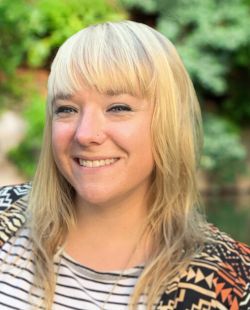 |
Lisa DuRusselAssistant Professor of Practice Landscape architecture Practicing landscape architect and educator with 15 years of professional design experience leading the design and implementation of award-winning projects that innovate on ecological design. She amplifies collaborative action with deep community engagement through the craft of design, experimentation and cross-disciplinary study. |
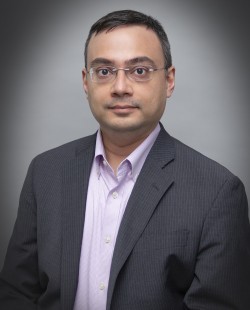 |
Parth VaishnavAssistant Professor Sustainable Systems RESEARCH FOCUS: how technology can help solve social problems; environmental and human health consequences of energy production and use; finding strategies to decarbonize the economy; making both mitigation and adaptation equitable; and studying the consequences of automation for the environment, equity, and work. Dr. Vaishnav employs quantitative decision analysis, buttressed by qualitative insight, to understand how economic, political, and operational realities constrain technology deployment. |
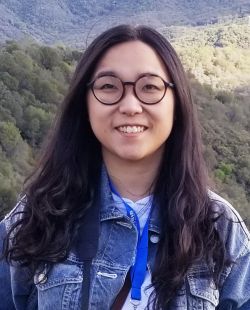 |
Runzi WangAssistant Professor Landscape Architecture RESEARCH FOCUS: change in natural and urban environments across space and over time; ecological planning and design strategies; how land-cover change and urban development influence water quality; neighborhood-scale green infrastructure design optimization; and continental-scale landscape change monitoring and projection. Dr. Wang combines technologies such as big data, machine learning, remote sensing, and spatial statistics. |
 |
Kyle WhyteGeorge Willis Pack Professor Environmental Justice RESEARCH FOCUS: moral and political issues concerning climate policy and Indigenous peoples; ethics of cooperative relationships between Indigenous peoples and science organizations; and Indigenous justice in public and academic discussions of food sovereignty, environmental justice, and the Anthropocene. Dr. Whyte is an enrolled member of the Citizen Potawatomi Nation. |
2021
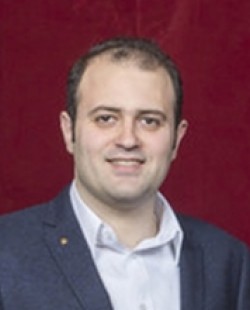 |
Hessam AzarijafariLecturer Sustainable Systems RESEARCH FOCUS: striving to make the current life cycle modeling and technosphere-ecosphere interactions assessment more accurate, and also to make scientific and industrial communities aware of their own actions on the environment. In this regard, he has been focusing on the symbiosis of various infrastructures, such as pavements and buildings. Dr. Azarijafari is an industrial ecology researcher with a background in civil engineering and construction management. |
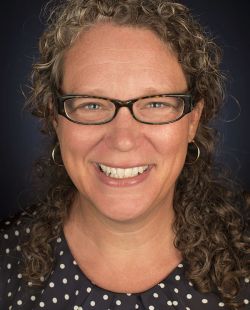 |
M'Lis BartlettLecturer Environmental JusticeCities + Mobility + Built Environment
RESEARCH FOCUS: participatory design, environmental education, environmental justice, and community-based participatory research. Dr. Bartlett is passionate about environmental and place-based education that incorporates issues of social justice. With over 25 years of experience as an urban environmental educator, activist, artist, and researcher in communities including New York City, Detroit, and Flint, Michigan, she is dedicated to building supportive and ethical partnerships between communities and institutions. |
 |
Brandy BrownLecturer Environmental Justice RESEARCH FOCUS: Dr. Brown is an experienced energy strategist with deep industry knowledge and demonstrated success in advancing decarbonization solutions from conception to implementation. Currently, she is Chief Innovation Officer at Walker-Miller Energy Services, where she blends research and emerging technology to deliver innovative energy solutions to historically marginalized communities. Prior to joining Walker Miller, Dr. Brown served as Climate and Energy Advisor and led the Office of Climate and Energy which was created by Governor Whitmer in 2019 to coordinate the state’s climate action efforts.. |
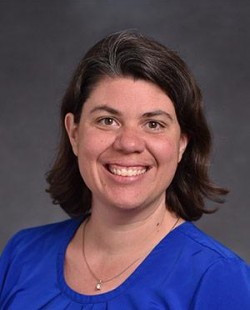 |
Sarah MillsLecturer Environmental Policy and Planning RESEARCH FOCUS: how energy development impacts rural communities, and in turn how state and local policies facilitate or hinder renewable energy development. As the senior project manager at U-M’s Center for Local, State, and Urban Policy (CLOSUP), Dr. Mills manages the Energy and Environmental Policy Initiative (EEPI), including the National Surveys on Energy and the Environment (NSEE) and the new Energy and Environmental Policy Research Group, expanding the reach of UM's research related to renewable energy policy. |
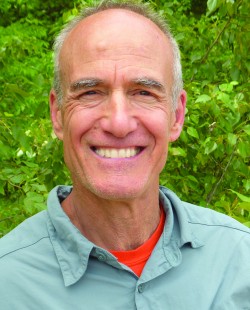 |
Peter ReichDirector of the Institute for Global Change Biology (IGCB), Professor Climate + Energy/Conservation + Restoration RESEARCH FOCUS: global change research on plants, soils, and ecosystems across a range of scales. Dr. Reich, a renowned expert in forest ecology, was the Chief Scientist at the Hawkesbury Institute for the Environment at Western Sydney University in Australia from 2011 to 2021. He is a member of the National Academy of Sciences of the United States and the American Academy of Arts and Sciences, a fellow of the Ecological Society of America, and a BBVA Prize Laureate (BBVA Foundation Frontiers of Knowledge Award in Ecology and Conservation Biology). Dr. Reich also helped launch the science education channel, MinuteEarth, which has more than 400 million views on YouTube and other platforms. |
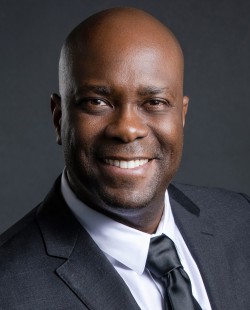 |
Cedric TaylorVisiting Associate Professor Environmental Justice RESEARCH FOCUS: racial health disparities, environmental justice and visual sociology. A former president of the Michigan Sociological Association, Dr. Taylor is a public sociologist who employs documentary film, visual media, and storytelling to engage the wider community in conversations around inequality. He is the writer, director, and co-producer of Nor Any Drop to Drink: Flint’s Water Crisis which has been screened throughout the country and internationally. |
2022
 |
Heidi Huber-StearnsVisiting Professor of Practice 2022 RESEARCH FOCUS: forest and wildfire governance. Through the Western Forest and Fire Initiative (WFFI), based at SEAS, Dr. Huber-Stearns will join a transdisciplinary working group organized to understand and develop strategies to manage forests and human communities in the western U.S. as an integrated social-environmental system. She will lead a process to engage stakeholders, co-produce knowledge, and develop programmatic and policy options based on applied research on interacting forest, fire, climate change, and community dynamics. Dr. Huber-Stearns will also aim to expand the network of connections between the SEAS community and practitioner organizations in the western United States. She is also affiliated with the Ecosystem Workforce Program at the University of Oregon, where she has been leading applied social science and natural resources research. |

